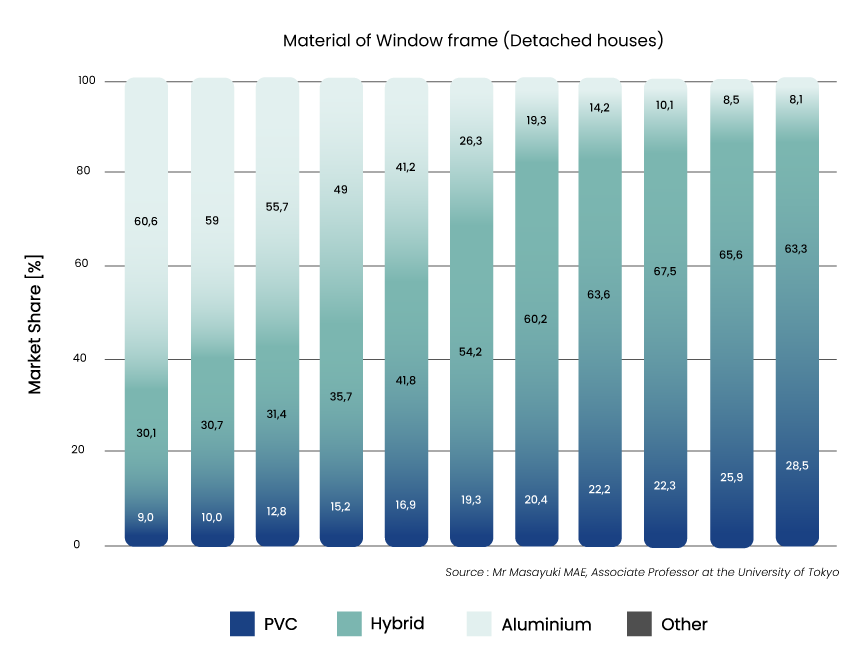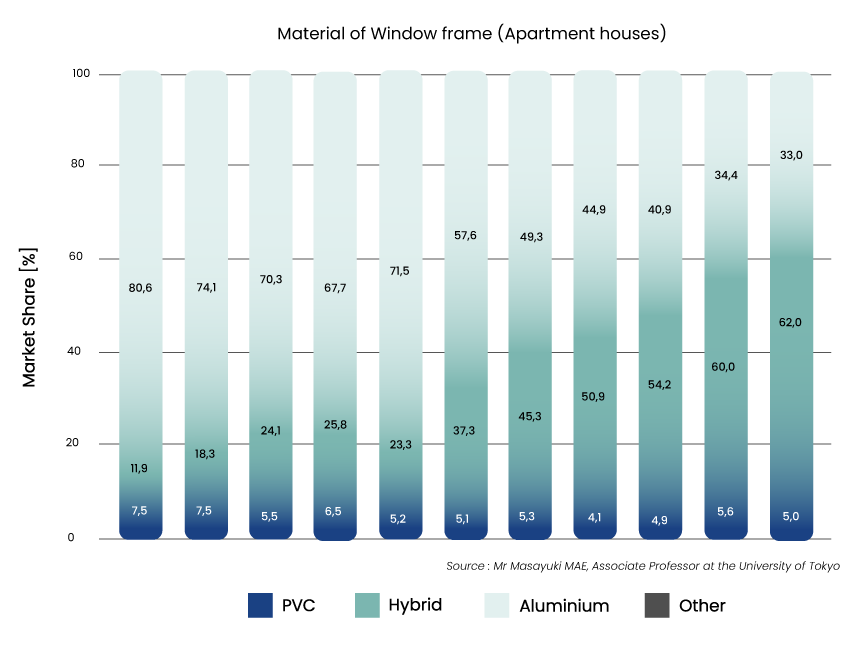 4 min
4 min
In your opinion, what are the current challenges facing the construction sector in terms of energy transition?
In Japan, poor performance of existing buildings is the biggest barriers for energy transition. Especially, bad insulation and poor air tightness of buildings’ envelop is the biggest cause for energy waste of heating and cooling.
Japanese government will start energy regulation of new buildings, including houses, from 2025. But regulation level is very low and number of new constrictions is decreasing because of souring cost of labor and material. Energy retrofit of more than 50 million existing houses is becoming critically important, but pace of spread is very slow.
Also read the article published in partnership with CLIMATE WEEK NYC : Is a world without air conditioning possible? The key role of the construction sector in meeting this global energy challenge.
In your opinion, what are the most important levers for accelerating the sector’s energy transition?
There are enough architectural solutions and technology necessary for energy retrofit. Especially the improvement of window made insulation easier. Now the problem of engineering has been solved, but financial support of society is most critical.
In Japan, performance of housing is almost ignored for loan screening and resale value evaluation. If bank increase loan limit and real estate agency evaluate higher price for high performance housing, the maintenance and retrofit will pervade dramatically. Some local bank and governments start that kind of pricing trial, but development of national wide system is strongly needed.
Also read: How does finance support the development of sustainable construction?
Mr Mae's research laboratory at the University of Tokyo is looking into technology and design methods required for future housing, aiming for sustainable architecture that delivers neither cold nor hot and healthy and comfortable living to all people at the lowest energy cost.«The most important thing for realizing and popularizing eco-houses that realize healthy and comfortable living with zero energy is to thoroughly analyze the local climate, especially solar energy, and to optimize the building layout, shape, and insulation performance.
Through experiment, actual measurement, and simulation by numerical calculation, while getting a solid understanding of the knowledge and technology of building environment engineering and building physics, a comfortable and zero-energy house can be achieved.».
To go further:
In terms of energy performance, what are the most exemplary projects or initiatives that you have seen in the construction sector in recent years?
The spread of well-insulated windows has been the most significant development of the past ten years and utilization of high solar heat gain glass for heating reduction is well known for architects and builders.


Next Experts' view on the energy issue:Hannah Audino, Buildings Decarbonisation Lead at the Energy Transitions Commission (UK)
Read other articles on on the energy issue:
- “The challenge: massifying energy renovation”
- Investing in renovation is crucial to tackle future energy crises
- Smart city: futile concept or keystone of the energy transition?
- The energy performance of buildings in the European Union
- Transport, waste and energy: the trifecta of decarbonization
- What’s the purpose of energy renovation?







